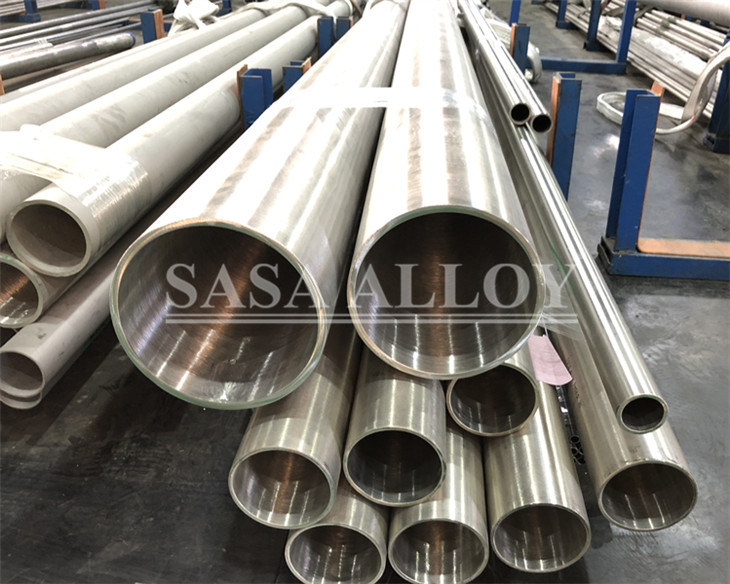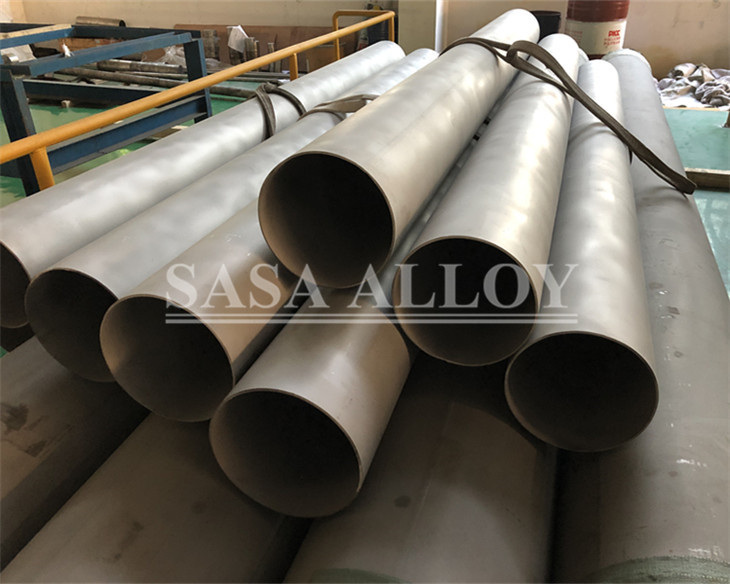When it comes to high-temperature piping in aerospace, petrochemical, and power generation industries, engineers frequently choose between austenitic stainless steels like 321H and high-performance nickel alloys such as Inconel 718. But as operating temperatures and pressure demands increase, the question arises—can Inconel 718 seamless pipe serve as a full-performance replacement for Stainless Steel 321H?
In this article, SASA ALLOY provides a side-by-side technical review of these two materials to help users assess their suitability for extreme environments where both mechanical reliability and oxidation resistance are critical.
1. Overview of Materials
Stainless Steel 321H
321H is a stabilized austenitic stainless steel with added titanium for improved resistance to intergranular corrosion after welding. It performs well in continuous service up to 850°C but suffers limitations under high-stress or pressure-based applications due to lower creep strength.
Inconel 718
Inconel 718 is a precipitation-hardened nickel-chromium alloy that maintains excellent strength, fatigue resistance, and oxidation resistance up to 700°C. Designed for high-load, high-temperature environments, it performs reliably under cyclic stress and corrosive atmospheres.
2. Key Technical Differences
| Property | 321H Stainless Steel | Inconel 718 |
|---|---|---|
| Max Operating Temp | 850°C (intermittent) | 700°C (continuous with higher mechanical strength) |
| Yield Strength (Room Temp) | 205 MPa | 1030–1250 MPa |
| Corrosion Resistance | Moderate (oxidizing conditions) | Excellent (oxidation + chloride + acid) |
| Weldability | Good | Moderate, requires expertise |
| Cost | Lower | Higher |
3. Where Inconel 718 Has a Clear Advantage
- Creep Resistance: Inconel 718 offers far better creep strength at elevated temperatures, making it more suitable for superheater tubing, pressure headers, or high-pressure steam lines.
- Corrosive Media: Inconel 718 excels in sour gas, seawater, and oxidizing + reducing acid mixtures where 321H would fail prematurely.
- Mechanical Stability: It maintains tensile strength and toughness across a wider temperature range under dynamic loads.
This makes Inconel 718 seamless pipe an ideal candidate in environments where thermal fatigue, high pressure, and corrosive media coexist.


4. Considerations Before Switching
- While the technical benefits are significant, users should consider:
- Higher procurement and fabrication costs for Inconel 718
- Specialized welding, heat treatment, and machining expertise required
- Potential over-specification if operating conditions are within 321H's capacity
Conclusion
- In summary, while 321H remains a valid choice for moderate high-temperature applications with minimal pressure, Inconel 718 offers unmatched mechanical integrity and corrosion resistance for the most demanding service conditions. For clients operating in aerospace, offshore, or high-pressure energy systems, the switch to Inconel 718 may offer both performance assurance and long-term cost savings through durability.
SASA ALLOY supplies certified Inconel 718 seamless pipes with full traceability and MTC documentation, ready for global project specifications.
Post time: Jun-18-2025